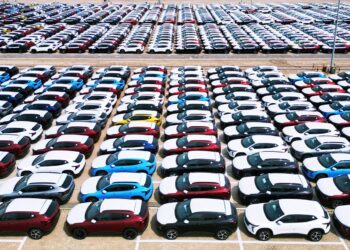No products in the basket.
More manufacturers to relocate from China to Southeast Asia
A
A
Bangkok, 11 July 2019 – More manufacturers have relocated from China to Southeast Asia over the past few years largely because The Red Dragon’s labor costs have become less and less competitive. This trend has been reinforced by the China-US trade war that began in 2018.
JLL anticipates the trend to accelerate as the China-US tariff war is driving more companies in China to relocate their operations to other countries to avoid US tariffs and maintain their competitiveness.
A new research report by property consultancy JLL indicates that Vietnam, Thailand and Malaysia are winning more manufacturers moving out of China.
Foreign direct investments into Southeast Asia’s manufacturing sectors have risen strongly in the last three years to USD 46 billion.
Relocations of manufacturing companies from China to take advantage of lower labor costs in the sub-region have contributed to this FDI growth.
RelatedArticles
Thailand is likely to benefit due to availability of skilled workforce with competitive wages

Offering availability of high-quality workforce and competitive wages, Vietnam, Thailand and Malaysia are winning more manufacturers expanding or relocating from not only China but also Korea and Japan, according to JLL’s report.
For example, Thailand and Malaysia have mid-tech workforce whose cost is now 60% lower than China, compared to 33% in 2010.
“The ongoing China-US tensions have reinforced the trend of more manufacturers relocating from China to Southeast Asia in an effort to minimise the business impact of the China-US trade war,”
says Mr. Subyagorn Sansugtaweesub, Head of Industrial at JLL.
So far, the US has slapped tariffs on USD 200 billion worth of Chinese products and China has set tariffs on USD 60 billion worth of US goods, while the latest meeting between the Chinese and US leaders on June 29 at the G20 conference in Japan ended without a clear path to ending the trade war.
“Thailand launched its Easter Economic Corridor (EEC) at a right time,” says Mr. Subyagorn. “It has drawn strong interest from foreign companies including those looking to relocate from China.”
“We have already seen many of these companies looking for opportunities to acquire land in the promotional zones to develop their manufacturing and logistics facilities. Some are looking to acquire built-to-suit facilities.
Others are looking for existing facilities that are put up for sale in the EEC with specifications that suit or could be easily adjusted to suit their operational requirements,” he adds.
EEC has become Thailand’s most attractive industrial destination for key industries

Spanning three provinces – Chachoengsao, Chonburi and Rayong, the EEC has become Thailand’s most attractive industrial destination for key industries that have been identified as highly potential future new-growth engines for the country such as automotive, intelligent electronics, robotics and aviation.
The Thai government has implemented a number of incentive policies and programmes to facilitate future industrial growth in the EEC such as substantial tax breaks, permission for foreign ownership of land for BoI promoted projects, and the right to lease state land on a 50-year term with an option, upon approval, to renew for another 49 years.
“Even if the China-US tariff war is put to an end, we believe that Thailand, particularly the EEC, will continue to retain its position as one of the most attractive industrial/logistics destinations in Southeast Asia, due to appealing incentive offers, availability of skilled labor, continued improvement in infrastructure, and the country’s advantageous location in the centre of the sub-region,” Mr. Subyagorn concludes.
Tags: Subscription





You must be logged in to post a comment.